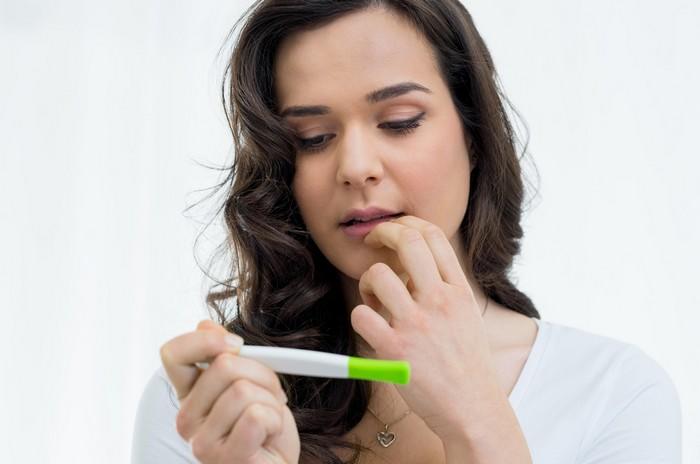Undescended testes, or cryptorchidism, is a condition in which one or both of the testicles fail to descend into the scrotum before birth. This condition is relatively common, affecting about 1 in 20 male infants at birth. While many cases resolve on their own, undescended testes can lead to serious health issues, including infertility. Understanding the reasons why undescended testes can cause infertility is crucial for both parents and patients. This article will explore the causes, potential consequences, and treatment options related to this condition.
Understanding Cryptorchidism
What are Undescended Testes?
Undescended testes occur when the testicles do not move from the abdomen or groin into the scrotum. In a typical scenario, the testes descend into the scrotum during the last few months of fetal development. If they do not descend by the time of birth, it is classified as cryptorchidism.
Types of Undescended Testes
There are two primary types of undescended testes:
Palpable Cryptorchidism: In this case, the testicle is located in the groin and can be felt during a physical examination.
Non-Palpable Cryptorchidism: Here, the testicle cannot be felt in the groin or scrotum, indicating that it may be located in the abdomen or may not have developed properly.
Causes of Undescended Testes
Hormonal Factors
Hormonal imbalances can contribute to undescended testes. Testosterone plays a crucial role in the descent of the testes. Insufficient levels of this hormone may prevent proper descent. In some cases, a lack of certain hormones from the hypothalamus or pituitary gland can also contribute to this condition.
Genetic Factors
Genetics can play a significant role in the development of cryptorchidism. Research has shown that if a father has a history of undescended testes, his son is more likely to experience the same condition. Certain genetic syndromes are also associated with higher rates of cryptorchidism.
Environmental Influences
Environmental factors may also contribute to undescended testes. Exposure to certain chemicals, toxins, and endocrine disruptors during pregnancy may impact the hormonal environment necessary for normal testicular descent.
The Link Between Undescended Testes and Infertility
How Does Cryptorchidism Affect Fertility?
Undescended testes can lead to infertility due to several factors:
Temperature Regulation: The scrotum is located outside the body because it helps maintain an optimal temperature for sperm production. The average temperature in the scrotum is slightly lower than body temperature, which is crucial for healthy sperm development. When the testes remain in the abdomen, they are exposed to higher temperatures, which can impair spermatogenesis, the process of sperm production.
Development of Sperm Cells: High temperatures can lead to damage in the seminiferous tubules, where sperm is produced. Damage to these cells can result in abnormal sperm or low sperm counts, both of which can lead to infertility.
Testicular Atrophy: In some cases, undescended testes may not develop properly and can undergo atrophy. Atrophy refers to a decrease in size and function. When this occurs, the testicles may produce fewer hormones and lower quantities of sperm, further impacting fertility.
Sperm Quality and Quantity
Research indicates that men with a history of undescended testes often have reduced sperm quality and quantity. Studies have shown that these men may have lower sperm counts and higher levels of abnormal sperm shapes (morphology). Poor sperm motility, or the ability of sperm to swim effectively, is also more common in individuals with cryptorchidism.
Diagnosis of Undescended Testes
Identifying the Condition
Undescended testes can often be diagnosed during a physical examination shortly after birth. Pediatricians will typically check for the presence of the testes in the scrotum. If they are not found, further evaluation may be necessary.
Imaging Techniques
If the testicles are non-palpable, imaging techniques such as ultrasound or MRI may be used to locate the undescended testes. These imaging methods help determine whether the testicles are in the abdomen or have not developed.
Treatment Options
Surgical Intervention
Surgery is the primary treatment for undescended testes. The procedure, known as orchidopexy, involves moving the testicle into the scrotum and securing it in place. This procedure is generally performed between the ages of six months and one year. Early surgical intervention can improve fertility outcomes and reduce the risk of complications.
Hormonal Therapy
In some cases, hormonal therapy may be used before surgery to encourage the descent of the testicles. Medications such as human chorionic gonadotropin (hCG) can stimulate testosterone production, potentially aiding in testicular descent.
see also: What Are the Chances of a Man Being Infertile?
Long-Term Considerations
Regular Monitoring
Men who had undescended testes should be monitored for fertility issues later in life. Regular check-ups with a healthcare provider can help assess hormone levels and sperm quality.
Fertility Testing
If a man with a history of cryptorchidism faces difficulties conceiving, fertility testing may be recommended. Semen analysis can help evaluate sperm count, motility, and morphology, providing insight into fertility potential.
Assisted Reproductive Technologies
For men with severe fertility issues due to undescended testes, assisted reproductive technologies (ART) such as in vitro fertilization (IVF) may be an option. These techniques can help couples achieve pregnancy even when sperm quality is compromised.
Conclusion
Undescended testes can lead to infertility in males due to several factors, including impaired temperature regulation, reduced sperm quality and quantity, and potential testicular atrophy. Early diagnosis and intervention are crucial in managing this condition. Surgical treatment can significantly improve the chances of maintaining fertility.
Men with a history of undescended testes should seek regular medical advice and monitoring to ensure reproductive health. By understanding the implications of cryptorchidism, patients and families can take proactive steps to address any potential fertility concerns and seek appropriate treatment options. If you suspect that you or someone you know may be affected by undescended testes, consult with a healthcare provider for a thorough evaluation and potential treatment options.
Related topics:



























